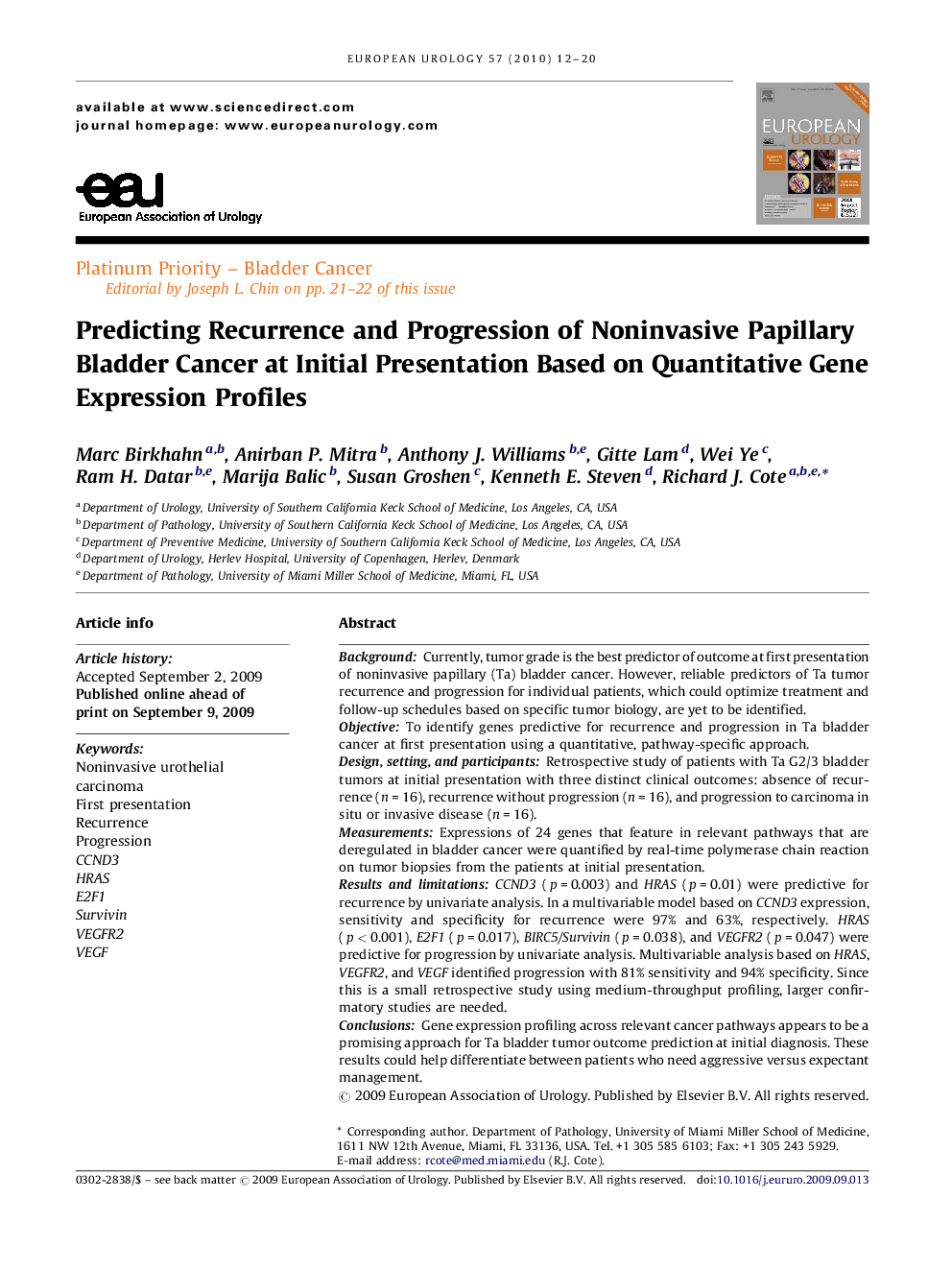| کد مقاله | کد نشریه | سال انتشار | مقاله انگلیسی | نسخه تمام متن |
|---|---|---|---|---|
| 3927157 | 1253166 | 2010 | 9 صفحه PDF | دانلود رایگان |

BackgroundCurrently, tumor grade is the best predictor of outcome at first presentation of noninvasive papillary (Ta) bladder cancer. However, reliable predictors of Ta tumor recurrence and progression for individual patients, which could optimize treatment and follow-up schedules based on specific tumor biology, are yet to be identified.ObjectiveTo identify genes predictive for recurrence and progression in Ta bladder cancer at first presentation using a quantitative, pathway-specific approach.Design, setting, and participantsRetrospective study of patients with Ta G2/3 bladder tumors at initial presentation with three distinct clinical outcomes: absence of recurrence (n = 16), recurrence without progression (n = 16), and progression to carcinoma in situ or invasive disease (n = 16).MeasurementsExpressions of 24 genes that feature in relevant pathways that are deregulated in bladder cancer were quantified by real-time polymerase chain reaction on tumor biopsies from the patients at initial presentation.Results and limitationsCCND3 (p = 0.003) and HRAS (p = 0.01) were predictive for recurrence by univariate analysis. In a multivariable model based on CCND3 expression, sensitivity and specificity for recurrence were 97% and 63%, respectively. HRAS (p < 0.001), E2F1 (p = 0.017), BIRC5/Survivin (p = 0.038), and VEGFR2 (p = 0.047) were predictive for progression by univariate analysis. Multivariable analysis based on HRAS, VEGFR2, and VEGF identified progression with 81% sensitivity and 94% specificity. Since this is a small retrospective study using medium-throughput profiling, larger confirmatory studies are needed.ConclusionsGene expression profiling across relevant cancer pathways appears to be a promising approach for Ta bladder tumor outcome prediction at initial diagnosis. These results could help differentiate between patients who need aggressive versus expectant management.
Journal: European Urology - Volume 57, Issue 1, January 2010, Pages 12–20